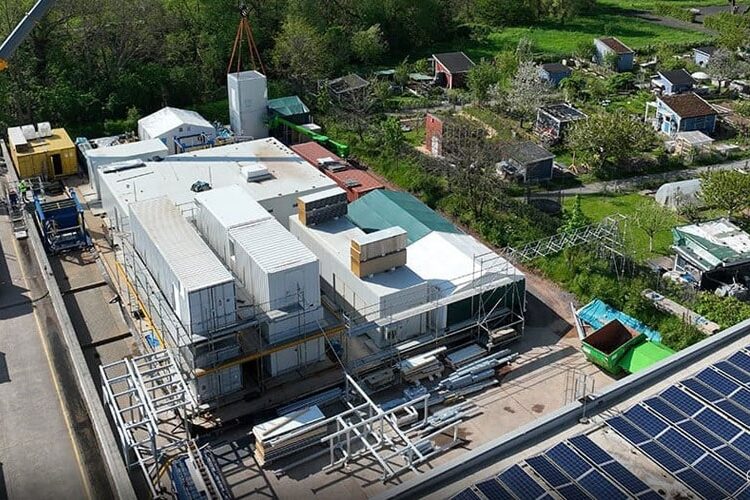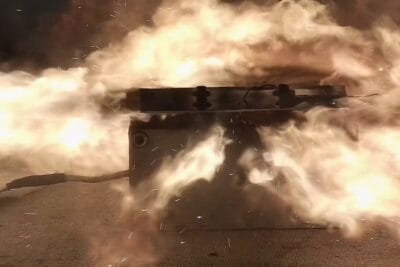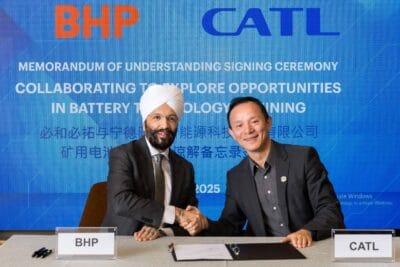Vulcan Energy extracts first lithium chloride in new factory
Vulcan aims to extract lithium from geothermal brine, creating a local source of sustainable lithium in Europe. Vulcan’s combined geothermal and lithium resource is the largest in Europe, with licence areas concentrated in the Upper Rhine Valley in Germany. In February 2023, Vulcan announced the results of a definitive feasibility study for the first phase of its lithium project, according to which Vulcan initially intends to produce 24,000 tonnes of lithium hydroxide monohydrate (LHM) per year. This is produced from lithium chloride in a multi-stage process.
The LEOP (“Lithium Extraction Optimisation Plant”) in Landau, which is now the focus of attention, has been in operation since last August and is on a scale of 1:50 compared to the commercial lithium extraction plant (LEP) planned for later, but has almost the same equipment as the commercial unit. It is used for product qualification, optimisation and training of the operating team with a view to later commercial production.
The LEOP follows on from Vulcan’s pilot plants in Insheim, which have extracted lithium chloride from Vulcan Energy’s producing wells over the past three years. Recently, brine has been fed into the LEOP in Landau for the first time, marking the start of the actual extraction process under the direction of the company. According to the company, an efficiency of up to 95% has been achieved in the extraction of lithium from geothermal brine through the use of direct lithium extraction by adsorption (A-DLE). A result that has already been achieved in Vulcan’s laboratories and pilot plants in Insheim.
According to the German publication Handelsblatt, Vulcan plans to begin construction of the commercial lithium plant in Landau at the end of the year. Construction of the commercial sister plant in Frankfurt-Höchst, where the material will be processed into lithium hydroxide, is scheduled to start in 2025. It should then be possible to supply large quantities of lithium hydroxide to companies by 2026 at the latest.
The commercial processing plant in Höchst will also initially receive a test unit similar to the LEOP, the so-called CLEOP (lithium electrolysis optimisation plant). Vulcan received the building permit for this in September 2023, and the topping-out ceremony was celebrated this week. According to Handelsblatt, the CLEOP is due to go into operation in the summer and will initially produce small quantities of the material for European car manufacturers such as Volkswagen and Stellantis. Specifically, the plant will convert lithium chloride into lithium hydroxide monohydrate – the company’s end product, which can then be used in battery production.
MD and CEO Cris Moreno stated: “This significant milestone marks a pivotal moment in Vulcan’s journey towards revolutionising domestic lithium raw material supply for Europe’s Battery industry. Vulcan’s LEOP facility is equipped with world-leading technology designed to showcase the efficiency of our A-DLE process and environmental benefits, whilst training our commercial production team in a pre-commercial environment as we build the Phase One commercial plant. It is encouraging to see LEOP deliver extraction efficiency in line with our expectations.”
investi.com.au, handelsblatt.com (in German)





0 Comments